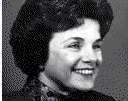The law of the ordsprog
 |
Bill Bradley (1943-) |  |
Dixie Carter (1939-)
Bill Clinton (1946-) |  |
Antal ordsprog er 1469561
varav 1490770 på nordiska
Ordsprog (1469561 st) Søg
Kategorier (2627 st) Søg
Kilder (167535 st) Søg
Billeder (4592 st)
Født (10495 st)
Døde (3318 st)
Datoer (9517 st)
Lande (5315 st)
Idiom (4439 st)
Lengde
Topplistor (6 st)
Ordspråksmusik (20 st)
Statistik
Denna sidan visar ordspråk som liknar "The law of the land is clear that you must have a separation of church and state. Any religion should be practiced in homes or places of worship, not in public schools.".
varav 1490770 på nordiska
Ordsprog (1469561 st) Søg
Kategorier (2627 st) Søg
Kilder (167535 st) Søg
Billeder (4592 st)
Født (10495 st)
Døde (3318 st)
Datoer (9517 st)
Lande (5315 st)
Idiom (4439 st)
Lengde
Topplistor (6 st)
Ordspråksmusik (20 st)
Statistik
Denna sidan visar ordspråk som liknar "The law of the land is clear that you must have a separation of church and state. Any religion should be practiced in homes or places of worship, not in public schools.".
